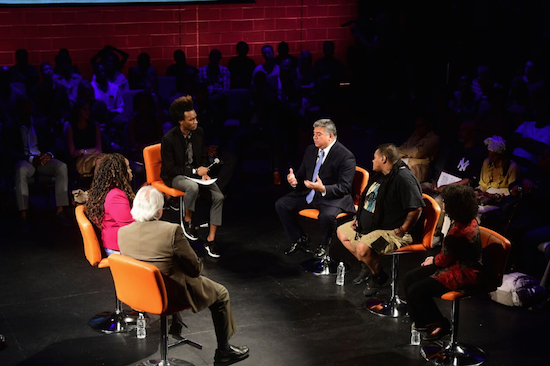BRIC TV’s latest town hall tackles the war on drugs

Kings County District Attorney Eric Gonzalez opens the discussion recalling drug arrests in his East New York neighborhood. Eagle photos by Andy Katz
It’s the hot-button issue that’s being debated all over the city.
A panel gathered on Wednesday night for a BRIC TV Town Hall, moderated by Brian Vines, to discuss the legalization and decriminalization of drugs.
Brooklyn District Attorney Eric Gonzalez; Dr. Hilary Kunins NYC Assistant Commissioner of Health and Mental Hygiene; Chino Hardin, field director for NuLeadership for Urban Solutions; Tom Robbins with The Marshall Project and Kassandra Frederique; New York state director of the Drug Policy Alliance were all on the panel. The last two also sponsored the evening’s town hall.
